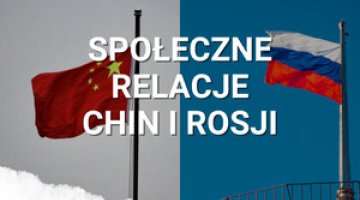Hungarian-Russian Paks nuclear project: a new breach in Western sanctions
In recent weeks, the Hungarian authorities have announced that foreign partners have lifted some of the restrictions related to the Paks II nuclear power plant project, which is being developed in cooperation with Russia. On 3 June, Minister Foreign Affairs and Trade Péter Szijjártó announced that Siemens Energy would be able to supply parts for the plant through the establishment of a subsidiary in Hungary, despite the previous German government’s refusal to approve the company’s involvement.
On 29 June, Szijjártó reported that the United States had lifted sanctions on Russia’s Gazprombank, which finances Rosatom’s operations, including the construction of two reactors in Hungary. Under a licence issued by the US Treasury Department’s Office of Foreign Assets Control (OFAC), twelve Russian financial entities have been granted permission – valid until 19 December this year – to participate in transactions linked to civilian nuclear projects launched before 21 November 2024, including Paks II. Earlier versions of the licence, issued on 18 December 2024 and 10 January 2025 at the end of President Joe Biden’s term, included a provision prohibiting Russian banks from engaging in payment operations related to Paks II. This led to settlement issues, effectively making the plant’s expansion by Rosatom impossible. Washington’s new decision, presented by the Hungarian government as a breakthrough for the project, is the result of months of diplomatic efforts by Budapest.
The lifting of restrictions on the construction of the Paks II nuclear power plant is another significant gesture by Donald Trump’s administration towards Budapest, following the lifting of sanctions against one of Hungary’s ministers. It also reflects the US government’s broader erosion of the Western sanctions regime. Nonetheless, even with the green light from Washington and German technological support, the project still faces numerous political, financial, and technical obstacles.
Commentary
- The breach in sanctions enables the continuation of the Hungarian-Russian project and sends a favourable political signal to Moscow. Until now, the US ban on processing transactions related to the construction of the Paks II power plant had effectively blocked work in Hungary. The sanctions imposed on Gazprombank, which handles Rosatom’s operations abroad, were particularly significant in this regard. The lifting of these restrictions now allows the plant’s expansion to proceed and carries notable political weight for the Kremlin. This licence marks the first instance of the Trump administration directly softening previous US sanctions measures targeting Russia. Moreover, the prospect of US-Russia cooperation in this area is being used by Moscow to attempt to influence Washington to revise its current stance towards Russia (see: ‘Russia continues to export uranium to the United States’).
- Hungary remains determined to complete the expansion of the power plant despite roughly a decade of delays in the project’s implementation. The new facility, with a capacity of 2,400 MW, is intended to replace the four currently operating reactors with a combined capacity of 2,000 MW. In parallel, preparatory work is under way to extend their operational lifespan by 20 years beyond the originally planned period, until between 2032 and 2037. These reactors currently account for half of Hungary’s electricity production. Since the signing of the Hungarian-Russian intergovernmental agreement in 2014, the project has faced numerous obstacles, modifications, and suspensions, and remains in its early stages – foundation laying began only in autumn 2023. The Hungarian government has not withdrawn from the venture despite Russia’s invasion of Ukraine and the risk of sanctions being imposed on the Russian nuclear sector. Recently, the issue has resurfaced at the EU level in discussions on the planned 18th sanctions package and the potential exclusion of Russian uranium imports. Washington is also lobbying for the supply of US nuclear fuel to Europe as a replacement for Russian fuel. The project’s costs could also prove problematic: initially estimated at €12.5 billion – 80% of which is covered by a loan from Moscow – this figure does not account for inflation. According to expert assessments, the total cost may reach approximately €20 billion.
- Siemens’ involvement in the expansion of the Paks power plant reflects Germany’s inconsistency in its approach to disengagement from cooperation with Russia. Since 2019, the project had envisaged that automated process control systems (ACS TP) for the new reactors would be supplied by a German-French technology consortium. However, in 2023 it emerged that the German authorities, citing Russia’s invasion of Ukraine, had refused Siemens Energy an export licence. Consequently, Framatome remained Rosatom’s only Western partner responsible for providing key components (see: ‘Russia’s nuclear project in Hungary: France’s growing role’). The decision announced in June this year regarding Siemens’ participation in the project is linked to the company’s relocation of its engineering and automation division to Hungary, enabling the Paks II project to be carried out through a local subsidiary. Although Siemens is not state-controlled, the absence of a clear position from the current government in Berlin – especially given the firm opposition of its predecessors – suggests that the new administration may be tacitly permitting such involvement.




